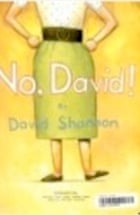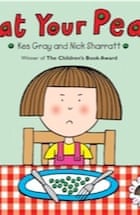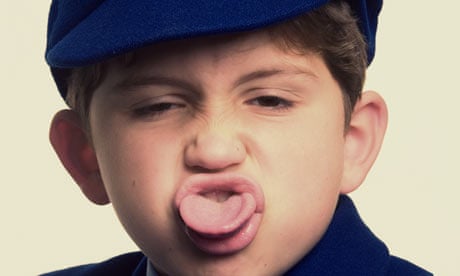
My four-year-old adores David Shannon's No, David! As we read the book, he revels in the terrible things that David does but, because we share them and I seem to like them too, he also feels that it is a permissible kind of behaviour. He certainly imitates it – we've had muddy footprints tramped across the carpet – and wants me to say "No Alex!" just as David's mum does. Do books like this encourage children – and their parents – to normalise more challenging behaviour? If so, is that a useful talking point or is it just a bad example for children to follow? I'm struggling with it! – Iva, mother of four-year-old Alex
In No, David!, David's terrible behaviour – splashing all the water out of the bath and filling his mouth with food to make it look like a volcano, for example – elicit the only two words of the text: No, David! from his mother.
She remains admirably restrained, or foolishly indulgent, depending on your perspective. It's certainly not surprising that your four-year-old, and probably many others, take the book as a licence to behave in the same way.
For some over-constrained children, that could be liberating – if irritating! Dr Seuss's classic The Cat in the Hat, which celebrates outrageous play behaviour all of which is cleverly all put straight just before Mother comes home, is the best example of this.
But the real point about a book like this – and there are many others, including Satoshi Kitamura's brilliant Angry Arthur, a visually explosively manifestation of a child's rage – is that they can provide a relatively neutral place for an objective look at children's behaviour and adults' reactions to it.

If it isn't something the child is actively doing, it allows them to experience what it would be like to do so and what the repercussions might be; if it is – as with picky eating, which is the bane of many parents' lives – then a book such as Kes Grey and Nick Sharratt's Eat Your Peas can allow them to see their behaviour reflected back to them, which gives them the opportunity to consider it coolly, away from confrontation with a parent.
